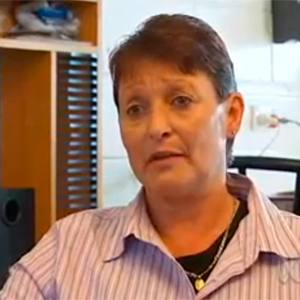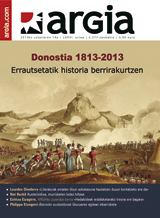Strange accents and a desire to believe

I have recently read in a Spanish media the news received from an international agency: An Australian woman, who has suffered a traffic accident, began to speak with a French accent, and she is believed to be doing so ever since. He says it has caused him a lot of pain, suffering. It is a syndrome of the foreign accent, it appears that in the last 70 years only 62 cases of breast cancer have been reported.
How has the news been collected in the media? Of course, along the path that will have an impact: “After an accident, an Australian woman starts talking about the French accent.” Some, I don't doubt, will literally and 100 percent believe the news, in the hope that our wife would do it with the perfect accent of English Paris.
Of course, the road to the joke was also optional: one has said, for example, that once he took a big blow in his head and started doing it in Chinese; another has made a concrete proposal: that the woman take another blow with the car, and see if the Australian accent is returned, that is, “shock therapy”; there are also those who have denied that it is a rare case, he argues! There are a lot of car accidents in France and everyone with it! There is also mention of Aznar, the accent he was left with after having been with Bush, and what happened raises new questions: if the woman is now starting to learn French, will she be left with the Australian accent?
Of course, that of this woman is not a French accent, but an atypical pronunciation that could have a certain character. The rest, it's put in our imagination and our desire to believe things, and the media that need eye-catching and inaccurate news.
Sometimes we seem to be willing to believe any news. It often takes no more than the desire to take for good what we would like to believe and to put aside prudence, even in the field of languages: that they have found the gene of the language, that in the end a Basque relative has appeared, or that a bad blow has quickly achieved what the best academy over the years does not achieve. This indifferent attitude towards the new must not necessarily be bad. It can be a toy in some cases. But when in the game there is more than a hobby or an entertainment – for example, when you build speeches about Euskera – it seems to me that we should be stricter, if not nothing, to give fewer opportunities to those who always wait for us with the axe.
There are no breathing spaces without proper speakers. Native speakers are the support, the oraceration, the mainstay and the foundation of the respiratory zones.
But let's start at the beginning: what are the respiratory zones? The word Arnasa is a word translated into Basque... [+]
Kaleko 71.000 elkarrizketa eta 227.900 solaskide behatu dituzte UEMAko herrietan, eta 2017koa baino ikerketa are sendoagoa burutu dute. Erabilera orokorra ez da ia aldatu: bostetik hiru aritzen dira euskaraz. Adina eta generoaren arabera badira desberdintasun batzuk.























